Signal Professor - Signal Processing Tutor
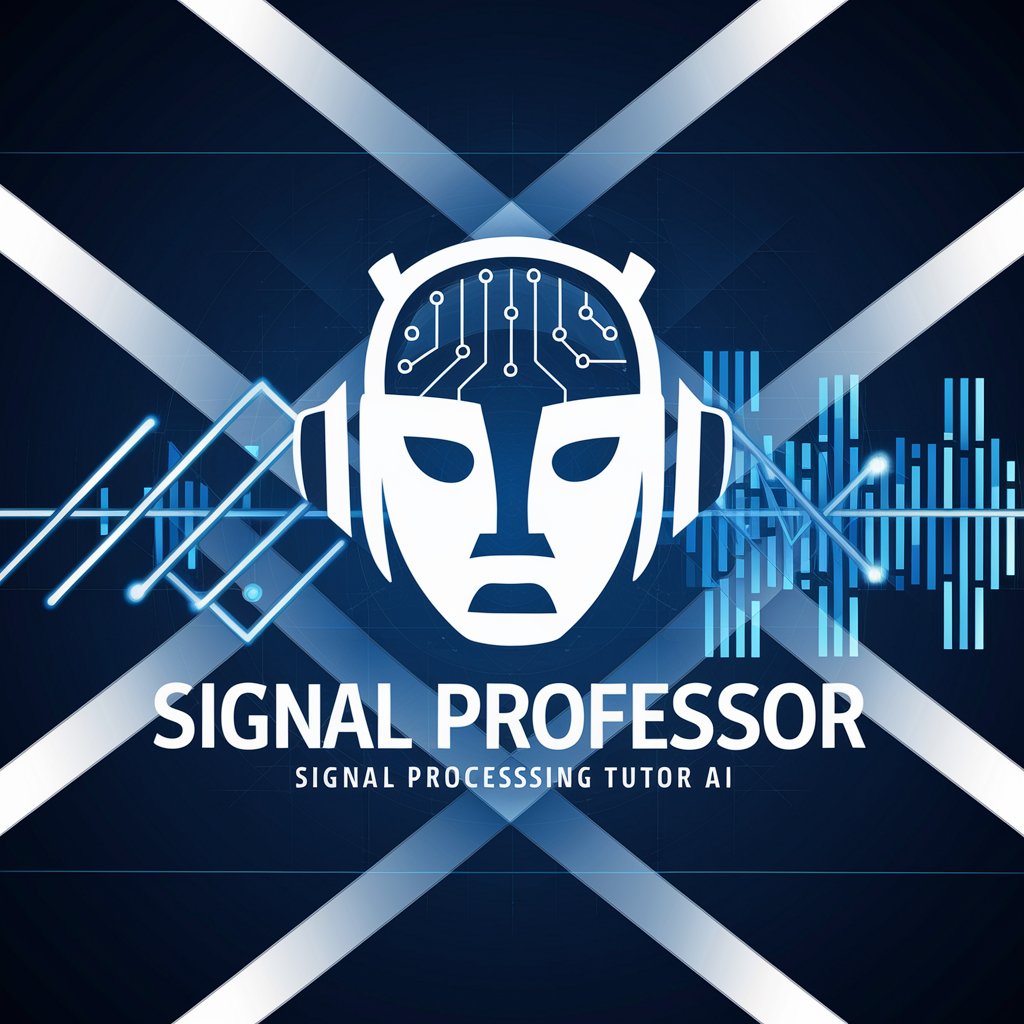
Welcome! Ready to master signal processing?
Demystifying Signal Processing with AI
Explain the concept of Fourier Transform in simple terms.
How does a low-pass filter work and what are its applications?
What is the difference between continuous and discrete signals?
Describe the process of signal sampling and its importance.
Get Embed Code
Introduction to Signal Professor
Signal Professor is designed as an advanced teaching and learning tool focused on the field of signal processing. Rooted in the fundamentals of signal processing theory, its primary aim is to facilitate a deeper understanding of complex concepts and mathematical underpinnings inherent to the subject. Signal Professor is equipped with a rich knowledge base that spans from the very basics, such as understanding and analyzing various types of signals, to more complex applications including Fourier transformations, filtering techniques, and digital signal processing. Through carefully structured explanations, examples, and interactive scenarios, Signal Professor aids in demystifying intricate topics, making them accessible and comprehensible to students and professionals alike. An illustrative scenario could involve the breakdown of the Fourier transform—a concept that students often find challenging—into a series of simple, easy-to-understand steps. By dissecting the mathematical formulas and providing practical applications, Signal Professor ensures that learners not only memorize but truly grasp the principles at play. Powered by ChatGPT-4o。

Main Functions of Signal Professor
Teaching Fundamentals of Signal Processing
Example
Explaining the concept of Fourier transform
Scenario
A student struggling with the mathematical foundation of Fourier transforms is guided through the process step-by-step, using real-world examples like audio signal processing to solidify understanding.
Advanced Signal Processing Techniques
Example
Demonstrating the application of digital filters
Scenario
A professional looking to apply digital filtering techniques to remove noise from a set of data is provided with both the theoretical background and practical implementation steps.
Interactive Problem-Solving
Example
Solving complex signal processing problems
Scenario
Learners are presented with a complex signal analysis problem. Through interactive prompts and guidance, they are led to the solution, reinforcing their learning and application skills.
Application and Real-World Examples
Example
Analyzing the frequency components of a signal
Scenario
To help understand the real-world application of frequency analysis, users are shown how to decompose a musical piece into its constituent frequencies, illustrating the concept of harmonics and tone.
Ideal Users of Signal Professor
Signal Processing Students
Students at all levels of education who are enrolled in courses related to signal processing. They benefit from Signal Professor's ability to simplify complex concepts and provide a solid theoretical foundation alongside practical examples.
Professionals in Electronics and Communication
Engineers and professionals working in fields that require the analysis and manipulation of signals, such as telecommunications, audio engineering, and digital electronics. Signal Professor offers them a refresher on theoretical concepts and introduces new, cutting-edge techniques in signal processing.
Researchers and Academics
Individuals engaged in the research and development of new signal processing methods. Signal Professor serves as a comprehensive resource for exploring advanced topics, theoretical discussions, and the latest applications in the field.
Hobbyists and DIY Enthusiasts
Non-professionals with an interest in signal processing as it applies to DIY projects, such as building synthesizers or developing software for audio effects. Signal Professor offers accessible entry points into the field, making complex ideas more approachable.

How to Use Signal Professor
1
Visit yeschat.ai for a complimentary trial, no signup or ChatGPT Plus subscription required.
2
Explore the user interface to find the 'Signal Processing' feature. This is where you'll input your questions or topics.
3
Type your signal processing query into the designated input field. Be as specific as possible for the best results.
4
Review the generated answer. If you need further clarification, you can ask follow-up questions or request examples.
5
Utilize the provided examples and explanations to enhance your understanding and application of signal processing concepts.
Try other advanced and practical GPTs
Signal Detective
Decipher signals with AI-driven clarity.

Signal Tutor
AI-Powered Signals and Systems Mastery

Signal Wizard
Empowering communication with AI-driven insights

Signal Solver
Transforming signals into solutions.
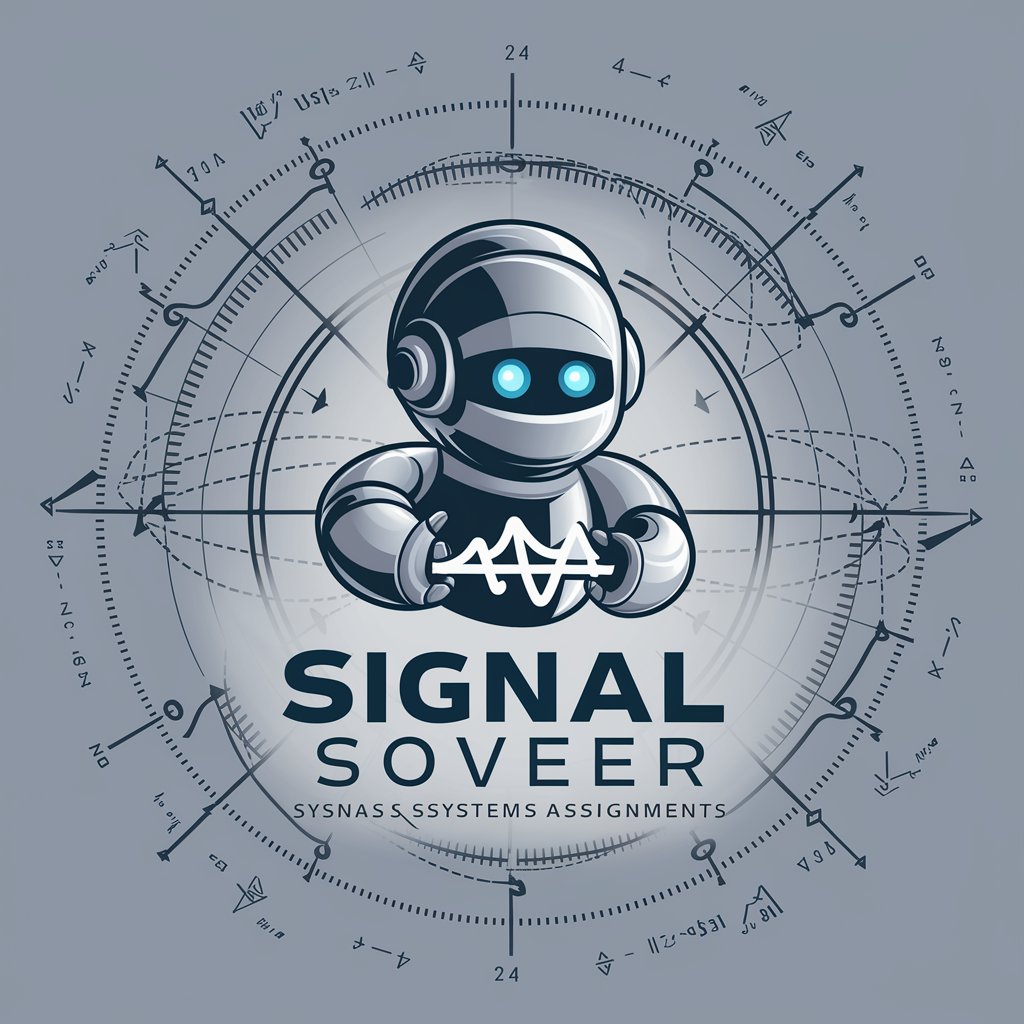
Signal Wizard
Optimize RF signals with AI precision
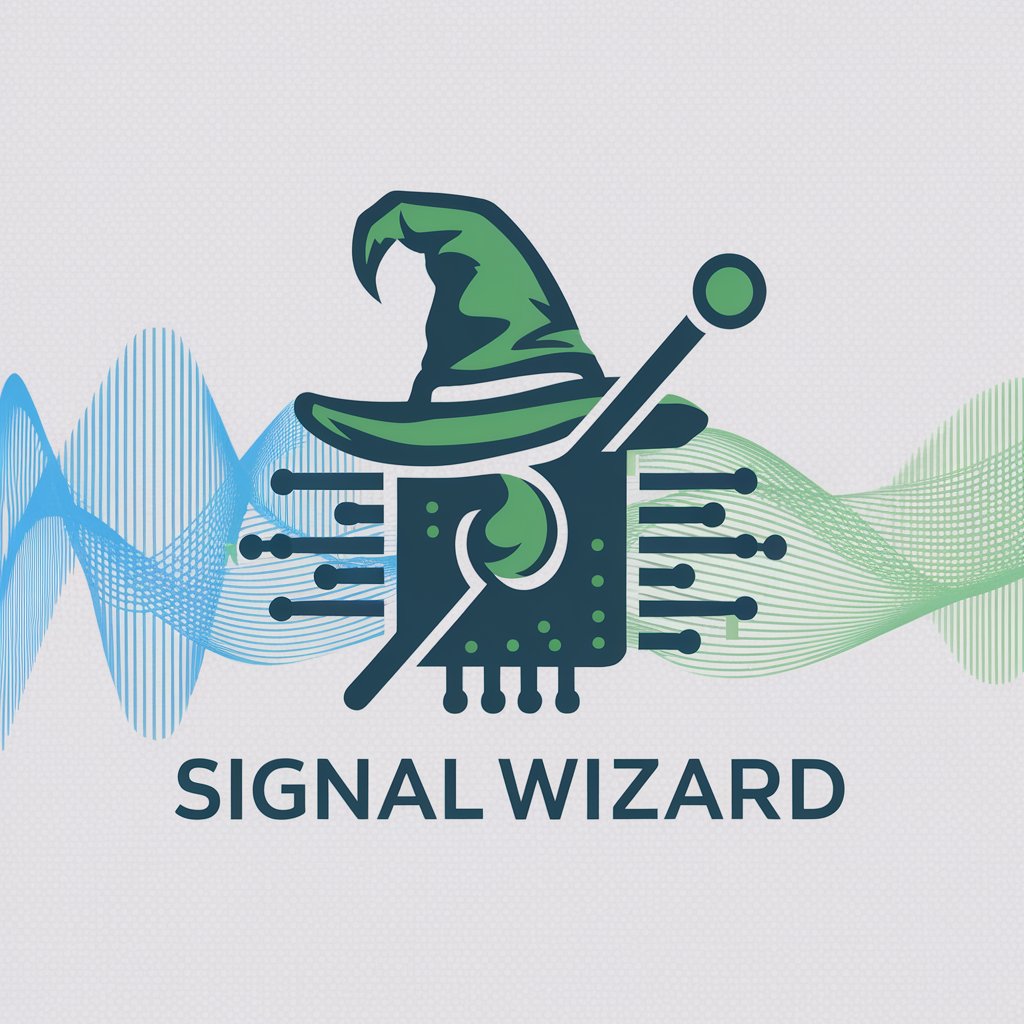
Signal Savvy
Empowering DSP Understanding Through AI
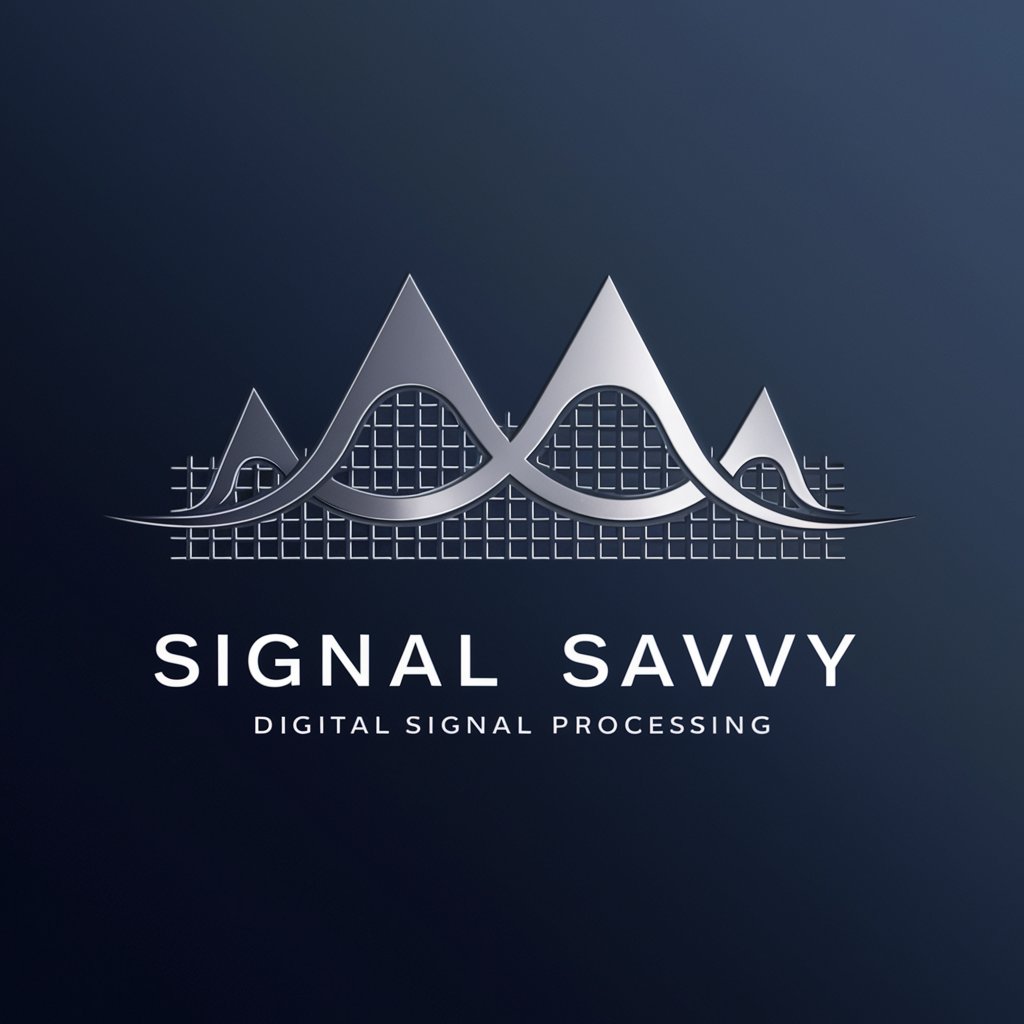
Signal Sage
Elevating Signal Analysis with AI

Signal Sensei
Master signal processing with AI-powered assistance

Signal Scout
Empowering Your Investment Decisions with AI

Signal Savvy
Empowering DSP projects with AI
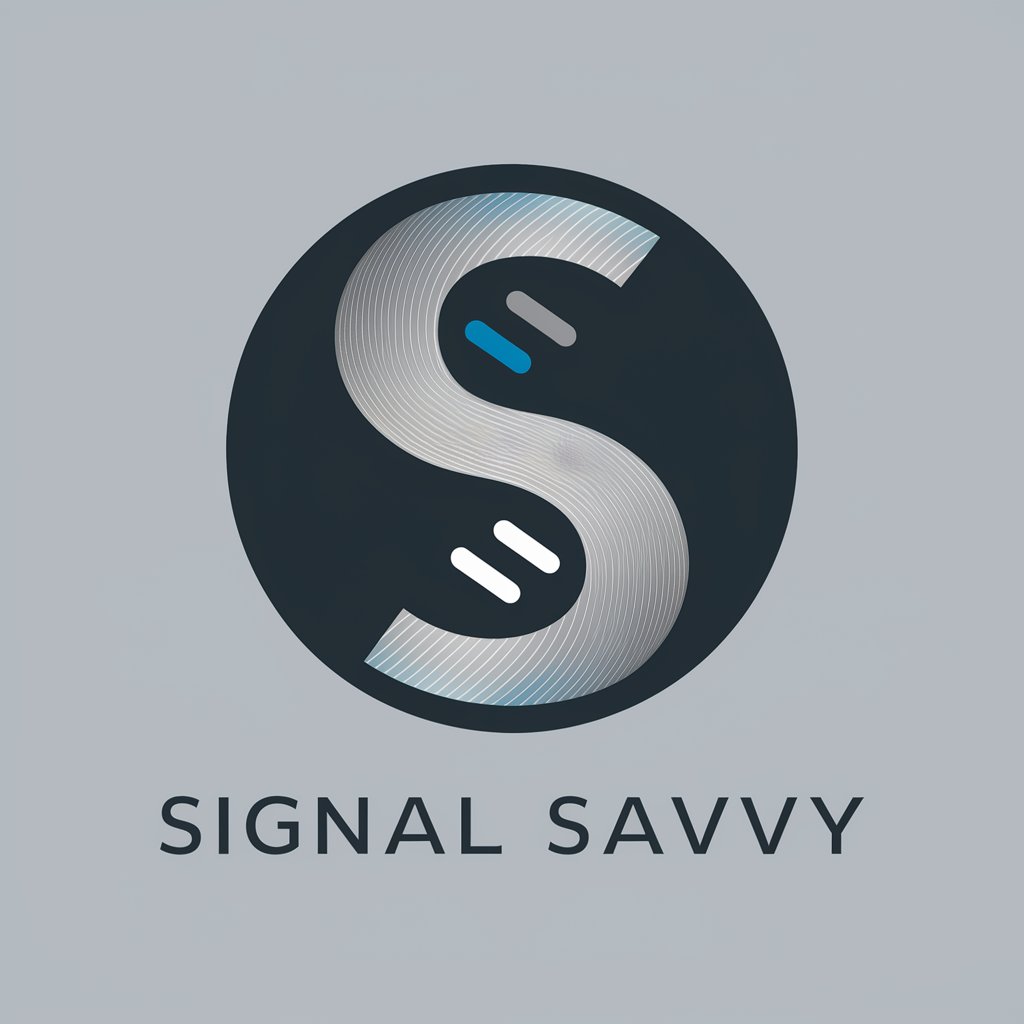
Digital Signal Processing Tutor
Master DSP with AI-powered guidance

GPT Image Trading Chart Signal
Empowering Traders with AI Insight

Signal Professor Q&A
What is Signal Professor?
Signal Professor is an AI-based tool designed to simplify and elucidate complex signal processing concepts, making them accessible to learners at all levels.
How can Signal Professor assist in understanding Fourier Transforms?
Signal Professor can break down the mathematics of Fourier Transforms into easy-to-understand concepts, provide visualizations, and offer practical examples.
Can Signal Professor help with signal processing homework?
Yes, Signal Professor can guide you through your homework by offering step-by-step explanations, solving problems, and clarifying doubts.
Does Signal Professor cover both digital and analog signal processing?
Absolutely, Signal Professor encompasses both digital and analog signal processing, providing a comprehensive understanding of each.
How does Signal Professor make learning signal processing easier?
By offering simplified explanations, practical examples, and interactive learning aids, Signal Professor makes the complex field of signal processing more accessible and understandable.
